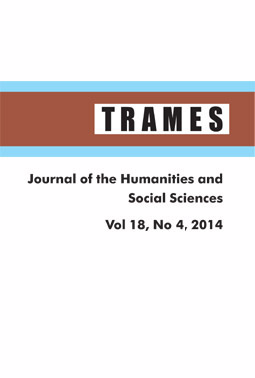THINKING BEYOND PHILOSOPHY:HANNAH ARENDT AND THE WEIMAR HERMENEUTIC CONNECTIONS
THINKING BEYOND PHILOSOPHY:HANNAH ARENDT AND THE WEIMAR HERMENEUTIC CONNECTIONS
Author(s): Liisi KeedusSubject(s): Philosophy
Published by: Teaduste Akadeemia Kirjastus
Keywords: Hannah Arendt; Friedrich Gundolf; Rahel Varnhagen; Romanticism; inter-war critique of modernity; anti-historicism; Weimar intellectual history; dialectical theology
Summary/Abstract: While there is increasing interest among Hannah Arendt’s readers in the ways in which her political ideas can be traced back thematically to Weimar influences, there are only fleeting reflections on the junctions between her famously unorthodox approach to political philosophy and the hermeneutic revolts of her youth. The present paper will explore some of these connections, arguing that the theoretical-methodological background of Arendt’s youth shaped her approach to what she later formulated as the basic predicaments of political modernity. In this context, I read Arendt’s early work in genealogical conjunction with the writings of Friedrich Gundolf, her literature teacher. It was particularly Gundolf’s critique of Romanticism that became relevant for Arendt’s work on Rahel Varnhagen, a Jewish hostess of a Berlin salon in the age of Romanticism. This link is not merely interesting, especially in the light of Arendt’s life-long passion for literature and weaving elements of it into her political theory. More importantly, it constitutes a crucial episode in the conceptual evolvement of her critique of political modernity, and as such, in the genesis of her theory of politics.
Journal: TRAMES
- Issue Year: XVIII/2014
- Issue No: 4
- Page Range: 307–325
- Page Count: 21
- Language: English

